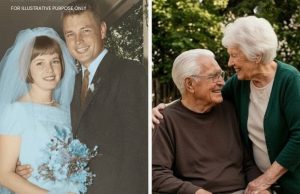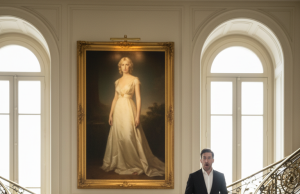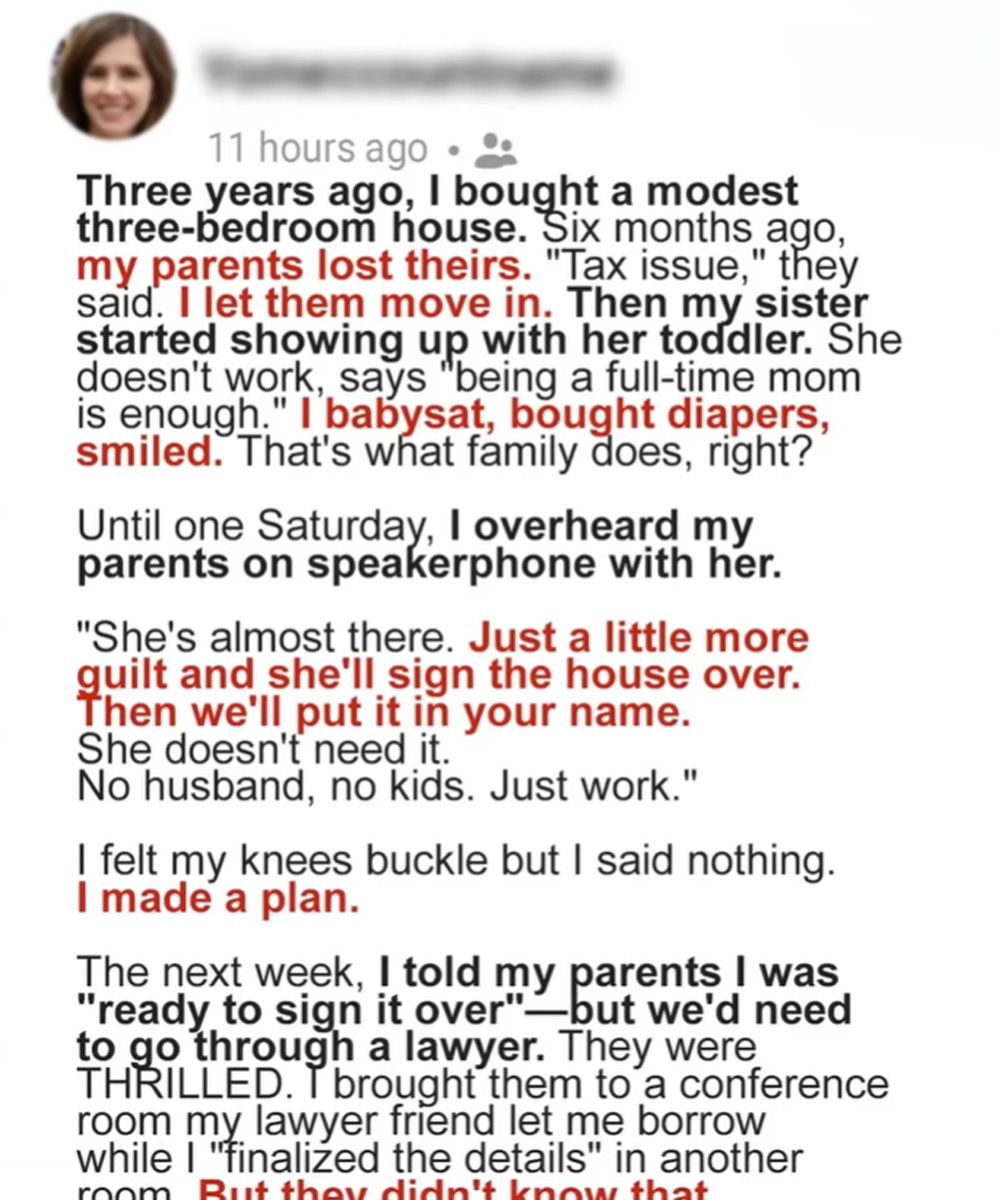
Sometimes, the strongest people are the ones who grew up too fast—forced into roles they never asked for, carrying the weight of others’ responsibilities while quietly sacrificing their own needs.
This is a story about what happens when being the “responsible one” becomes an identity rather than a choice. It’s about family, boundaries, betrayal—and ultimately, self-respect.
For most of my life, I believed being “the responsible one” was just what you did.
While my parents acted like carefree teenagers, I balanced bills, managed groceries, and kept our home running—starting before I even reached high school.
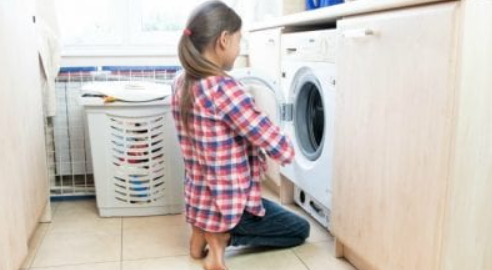
I didn’t resent them. I just figured someone had to hold everything together.
Looking back, I was parenting the very people who should’ve been raising me.
By thirty, I finally carved out peace.
I’d bought a modest home, lived simply, and kept to myself—no husband, no kids, just quiet.
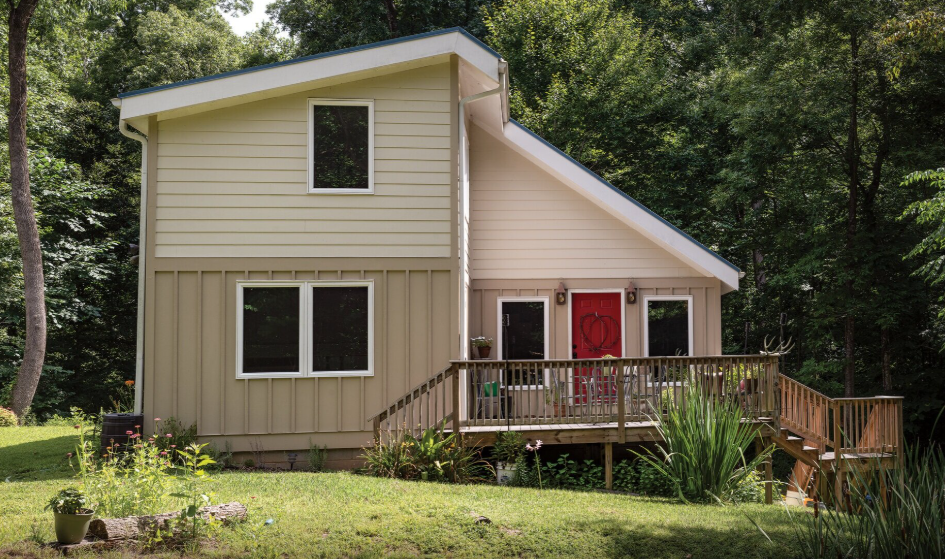
I still helped my parents and sister occasionally, but my house was my sanctuary.
That is, until my dad called with five words that shattered everything: “We lost the house. Tax issue.”
Suddenly, my calm world cracked open and chaos moved in.
Child baby blankets
Without thinking, I told them they could stay.
At first, things were manageable—I stretched my budget, gave up space, and adapted to the noise.
But soon, the criticism crept in.
They mocked my lifestyle, made snide remarks, and acted like I owed them something for having a stable life.
My own home began to feel like a place I didn’t belong in.
Then my sister Claire started visiting nonstop, toddler in tow, expecting help.
I babysat, bought diapers, and told myself it wouldn’t last.
One quiet Saturday, I overheard everything—my parents plotting with Claire to guilt me into signing over my house.
I didn’t yell.
I set a trap—and made sure they heard exactly how replaceable they were.
It was the day I stopped being their safety net and became my own hero.
The following morning, I began setting the stage. I played the part—warmer, more giving. Dad made a few loaded comments like, “A house like this really belongs to someone with a future… like your sister and me.”
I just smiled and nodded.
A week later, I told them I was ready to hand over the house.
“Of course, it has to be done properly,” I said sweetly. “We’ll get a lawyer involved and make everything official.”
They lit up. No hesitation, no suspicion. Maybe they thought they’d finally worn me down, or that I was naive, or maybe they were just too confident in their manipulation. Mom even wore her nicest perfume for the occasion. Dad rehearsed some speech about “leaving a legacy” on the way over.
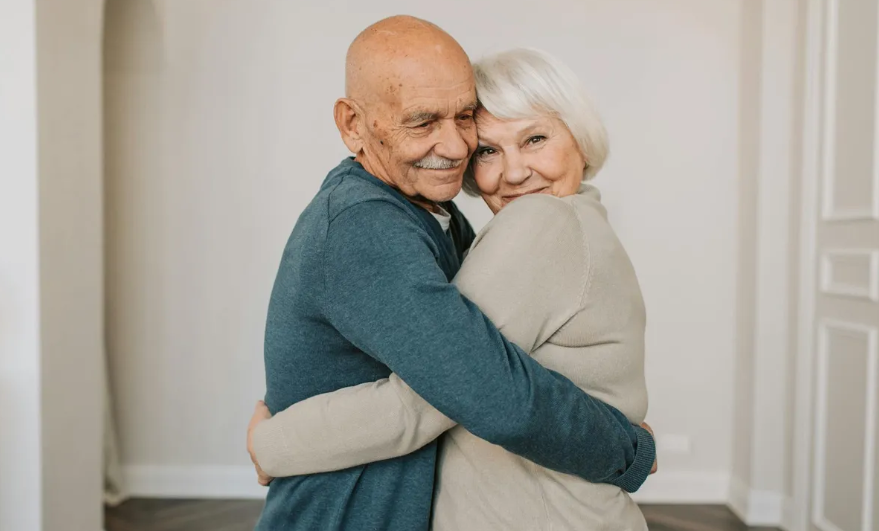
I nodded politely, knowing they had no idea what was coming.
My friend Jordan, a real estate attorney, had let me borrow a pair of adjoining conference rooms for the afternoon—one for the “meeting” and one with a thin shared wall for what I had planned.
Before they arrived, I prepped both rooms—chairs, water, everything arranged. Then I called Claire.
“Hey,” I said casually, “Can you stop by around 2? I’ve got something big to offer you.”
She showed up twenty minutes early, her toddler in tow like extra luggage.
I asked our parents to wait in one room while I “wrapped up some paperwork” in the other. They were so excited they didn’t even question me slipping away through the connecting door.
What they didn’t know was that they’d soon hear every word through that thin wall.
I greeted Claire, handed her a hefty folder full of fake documents, and laid it out: “The house and the car—yours. But I need one thing in return: a signed agreement that you’ll place Mom and Dad in a care facility. Permanently. No at-home care later. No exceptions.”
She didn’t hesitate.
“Oh my God, yes,” she laughed. “They’re exhausting! Honestly, I’d drop them off tonight. If I get the house and car, it’s a done deal!”
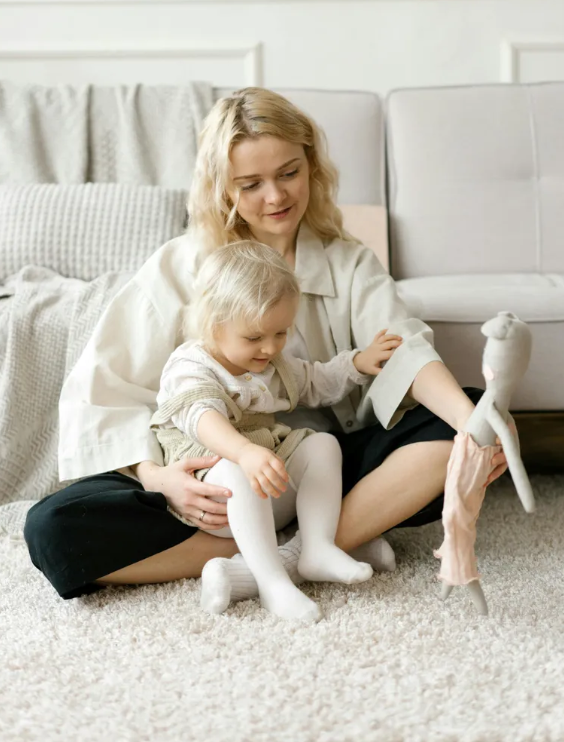
And that’s when I opened the adjoining door.
Our parents stood frozen in shock. My mom looked stunned, like she’d been slapped. Dad suddenly seemed ten years older.
“You… you were going to give us up? For a house and a car?” Mom whispered, shaking.
Claire paled. “Wait—what? I didn’t mean—”
I stood slowly, picking up my bag.
“I was never signing over the house. But now I know exactly how easily you all would betray each other.”
Dad tried to defend it. “We were scared. It wasn’t personal.”
I looked at him evenly. “No—it was calculated.”
Claire opened her mouth, then closed it. Her toddler wailed. She looked at me like I was someone she didn’t recognize.
I turned to her and said, “They worked so hard to give you this house. Now it’s your turn to take care of them.”
Panic filled her eyes. “Wait—I didn’t—”
But I was already walking out.
“You won’t step foot in my home again. The locks are changed. Your things will be delivered to Claire’s place by week’s end.”
Claire never let them move in. Within days, my parents were renting a small apartment outside the city and working part-time for the first time in decades. Mom began tutoring Spanish. Dad took a night job stocking shelves. A neighbor told me Dad cried in his car during his first shift.
I didn’t gloat. But I didn’t pity them either.

As for me?
I slept.
The kind of deep, uninterrupted sleep I hadn’t known in years.
I started hiking. Enrolled in a painting class. Read novels for no reason. Sat in coffee shops and stared out windows just because I could.
Then I met Ben.
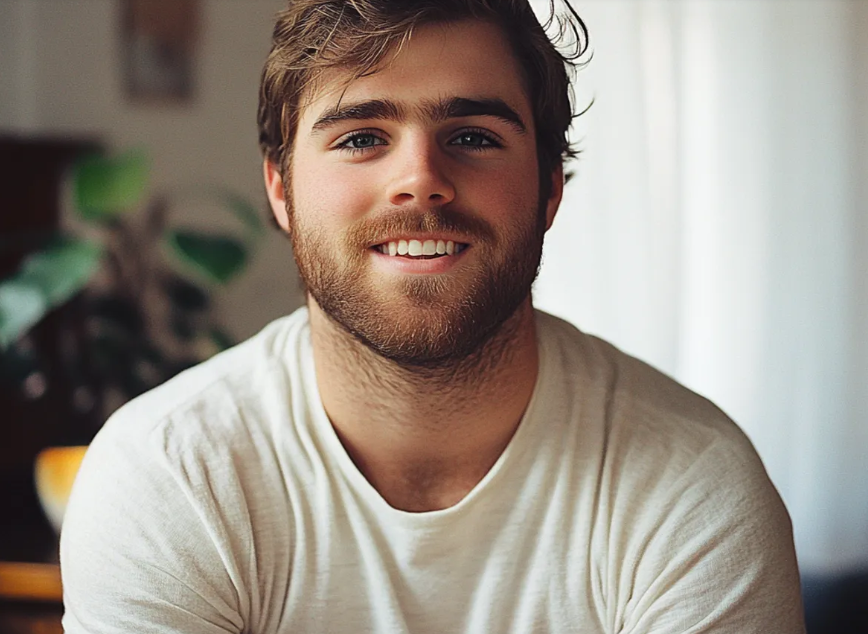
He was calm, kind—an engineer who fixed things, not people. He asked about my favorite artists, not my résumé. He knew how to sit in silence without making it feel heavy. We stayed up late talking because we wanted to, not because we had to.
One night, over a quiet dinner, he asked, “Do you ever want kids?”
I paused.
“Maybe,” I said. “But only if I know I won’t be raising them by myself.”
He nodded. “That’s fair.”
Now we’re planning. Not just for children, but for a shared life. One built from scratch, with honesty, mutual respect, and no guilt.
For the first time, I’m not someone’s backup plan.
I’m not carrying anyone else’s weight.
I’m just living.
And I’m finally free.



